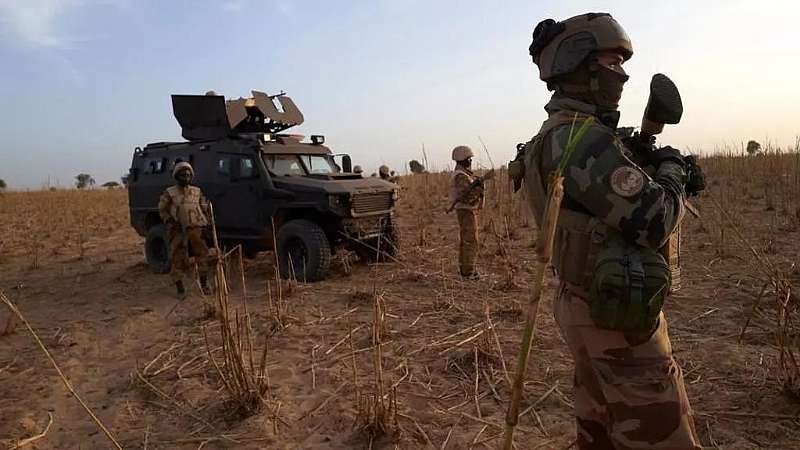
[ad_1]
France must resume its joint operations with the Malian armed forces, after suspending them early last month following the second coup in Mali in less than a year. Lemine Ould Salem, journalist specializing in the Sahel, believes that the French president’s decision is realistic.
Following consultations with the Malian transitional authorities and the countries of the region, France “decided to resume joint military operations as well as national advisory missions, which had been suspended since June 3,” said the Minister. French Minister of the Armed Forces in a press release Friday evening.
France has 5,100 soldiers in the Sahel as part of its Operation Barkhane which covers five countries: Burkina Faso, Chad, Mali, Mauritania and Niger.
On June 10, President Emmanuel Macron announced a major withdrawal of the French military presence in the Sahel, where forces have been fighting jihadist insurgents for nearly a decade.
Barkhane is to be replaced by a new mission that will focus on combating terrorism and supporting local forces.
The decision to suspend joint operations came after Mali’s military strongman Assimi Goita, who led last year’s coup, toppled the transitional civilian president and the country’s prime minister.
But the decisions to suspend cooperation with the Malian army and to transform Barkhane “were very badly received in the Sahel, but also in Paris,” Salem told RFI. In addition, the decision to stop working alongside the Malian forces was taken “without consultation with the military, which has never been – it seems – favorable”.
By resuming cooperation with the Malian army, President Emmanuel Macron “has finally come to his senses, being realistic,” said Salem.
The withdrawal of French troops was unpopular in several other African countries, including the Economic Community of West African States (Ecowas) which had taken note of its regrets, Salem said.
“In other words, stopping to cooperate with the Malian army on the ground could have pushed part of this army – tempted to open negotiations with jihadist groups – to make more concessions and to be much more conciliatory with these jihadist groups. .
“It was a disaster that many people feared.”
From Barkhane to Takuba
The presence of France in Mali will integrate a European task force called Takuba of which “hundreds” of French soldiers would constitute the backbone.
Currently, the Takuba force is made up of around 600 men, half of them French.
The Czech Republic, Estonia, Italy, Romania and Sweden have also committed to participate.
For Salem, the transformation of Barkhane “was predictable because it had not given the result hoped for by all” but there was no question for the French army to withdraw completely.
But in its statement, the Ministry of the Armed Forces declared that “France remains fully engaged, with its European and American allies, alongside the countries of the Sahel and international missions” to fight against the jihadist groups which are rampant in the Sahel “.
“The time had come to reflect and change the system,” said Lemine Ould Salem. “The Malians, the Sahelians and the French all agreed on this.
The change of device, he concludes, “perhaps pushed Macron to listen to the soldiers, who did not agree at all with the suspension of military cooperation with the Malian army”.
Source link